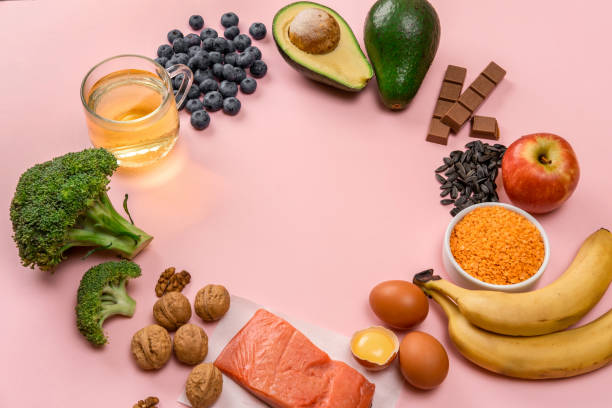A balanced diet is essential for achieving optimal well-being. The best foods for well-being play a vital role in not only improving physical health but also boosting energy levels and helping to prevent diseases. By incorporating the best foods for well-being into your daily meals, you can maintain a healthy body and mind. These best foods for well-being are rich in essential nutrients that support overall health. In this article, we will guide you through the best foods for well-being, offering insights into how each choice contributes to your long-term health. Making the best foods for well-being a part of your routine ensures your body receives the nutrition it needs to thrive. Ultimately, the best foods for well-being will help you feel energized and reduce the risk of chronic health issues.
1. Fresh Fruits and Vegetables

Fruits and vegetables are the cornerstones of a healthy diet. Not only do they provide essential vitamins, minerals, and fiber, but they also support the body’s natural processes and supply the nutrients needed for optimal function. In fact, they promote general health and reduce the risk of developing various health conditions, such as heart disease, diabetes, and certain types of cancer.
Spinach
For instance, spinach is a nutrient-dense vegetable packed with iron, vitamin K, and antioxidants. It promotes healthy blood circulation, strengthens bones, and supports overall immune function. Additionally, the antioxidants in spinach, such as lutein, benefit eye health.
Blueberries
Similarly, blueberries are rich in antioxidants, particularly anthocyanins, which help fight oxidative stress and inflammation. Consequently, these tiny fruits improve memory, cognitive function, and may reduce the risk of age-related cognitive decline. Furthermore, blueberries offer vitamin C, which boosts the immune system.
Avocado
Moreover, avocado provides healthy monounsaturated fats, which are beneficial for heart health. It contains potassium, fiber, and antioxidants, making it an excellent choice for overall wellbeing. By eating avocado regularly, you can help lower blood pressure and promote healthy cholesterol levels.
Carrots
On the other hand, carrots are loaded with beta-carotene, which the body converts into vitamin A. This vitamin is crucial for maintaining good vision, immune function, and skin health. Additionally, carrots contain fiber, which supports digestion and stabilizes blood sugar levels.
Tomatoes
In the same way, tomatoes are rich in lycopene, an antioxidant that may reduce the risk of certain cancers, particularly prostate cancer. Lycopene also helps protect the heart and lower bad cholesterol levels. Moreover, tomatoes are an excellent source of vitamin C, potassium, and folate.
By adding a variety of fresh fruits and vegetables to your daily meals, you can provide your body with the full spectrum of nutrients it needs to thrive.
2. Nuts and Seeds
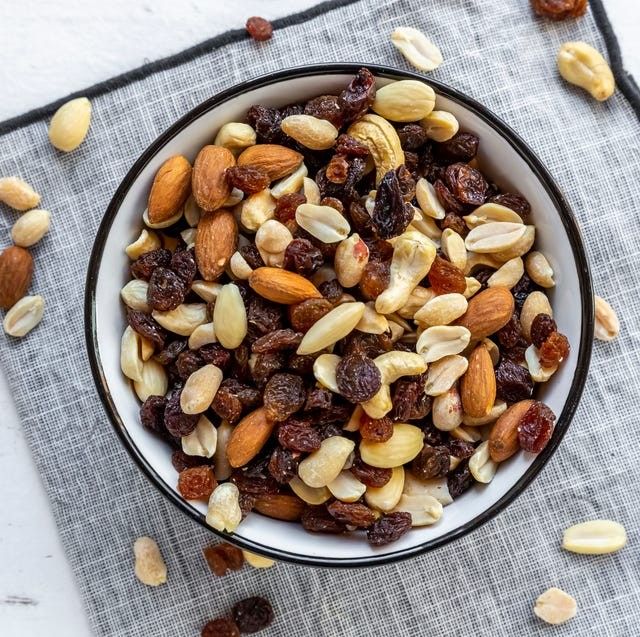
In addition to fruits and vegetables, nuts and seeds are fantastic sources of healthy fats, protein, and fiber. These nutrient-dense foods contribute to heart health, weight management, and sustained energy throughout the day.
Almonds
For example, almonds are an excellent source of vitamin E, an antioxidant that protects cells from damage. They also provide magnesium, supporting muscle and nerve function, and fiber, which aids digestion and keeps you full longer. Studies show that almonds can help reduce LDL (bad) cholesterol and promote healthy blood sugar levels.
Chia Seeds
Similarly, chia seeds are rich in omega-3 fatty acids, which support heart health and cognitive function. They are also packed with fiber, protein, and minerals like calcium, magnesium, and zinc. As a result, chia seeds help regulate blood sugar and promote satiety.
Walnuts
Additionally, walnuts are another great source of omega-3 fatty acids, specifically alpha-linolenic acid (ALA), which reduces inflammation and supports brain health. They also contain antioxidants that protect against oxidative stress and free radical damage.
Pumpkin Seeds
Furthermore, pumpkin seeds are high in zinc, magnesium, and antioxidants. They have anti-inflammatory properties and support prostate health. These seeds also offer plant-based protein and fiber, making them an excellent choice for vegetarians and vegans.
Including a variety of nuts and seeds in your diet can support a healthy heart, enhance brain function, and keep you energized throughout the day.
3. Fatty Fish

Fatty fish, such as salmon, mackerel, sardines, and trout, are rich in omega-3 fatty acids, essential for heart and brain health. Omega-3s help reduce inflammation, lower blood pressure, and improve cholesterol levels, making fatty fish a heart-healthy food choice.
Salmon
In particular, salmon is a top source of omega-3 fatty acids, which reduce the risk of heart disease, improve cognitive function, and fight inflammation. It’s also rich in protein, vitamin D, and B vitamins, all of which are crucial for overall health.
Mackerel
Likewise, mackerel is another fatty fish packed with omega-3s. It’s also a good source of vitamin B12, important for energy production and red blood cell formation.
Sardines
Sardines, though small, are nutrient-dense and provide omega-3 fatty acids, protein, calcium, and vitamin D. These nutrients support bone health and reduce the risk of heart disease.
Eating fatty fish at least two to three times a week can improve cardiovascular health, brain function, and reduce the risk of chronic diseases.
4. Whole Grains
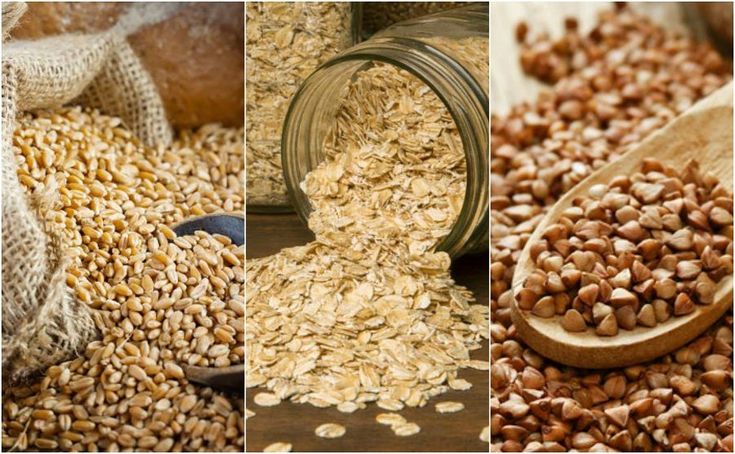
Whole grains offer complex carbohydrates and fiber, providing a steady energy release throughout the day. They also promote digestive health and lower the risk of chronic diseases such as diabetes, heart disease, and some cancers.
Oats
For example, oats are a healthy whole grain high in soluble fiber, particularly beta-glucan, which helps reduce cholesterol and improve heart health. They also offer B vitamins, iron, and magnesium, essential for energy production and muscle function.
Quinoa
Similarly, quinoa is a complete protein, meaning it contains all nine essential amino acids. It’s also gluten-free, making it ideal for those with gluten sensitivities. Additionally, quinoa is high in fiber, antioxidants, and minerals like magnesium and potassium.
Brown Rice
In the same way, brown rice is a whole grain high in fiber, promoting healthy digestion. It also provides manganese, crucial for bone formation, wound healing, and metabolism.
Incorporating whole grains into your diet ensures a steady energy supply, improves digestion, and reduces the risk of chronic diseases.
5. Legumes
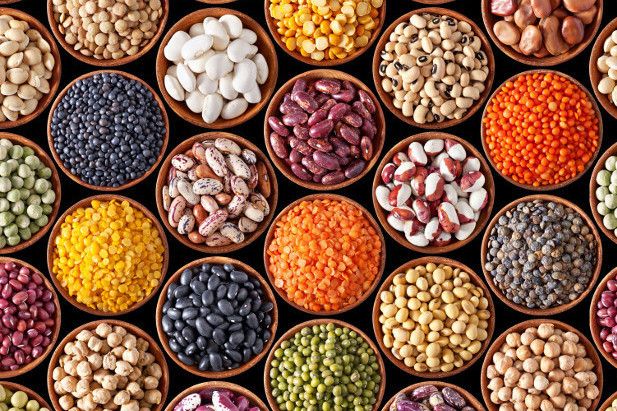
Legumes, including lentils, beans, and chickpeas, are excellent plant-based sources of protein and fiber. These foods are low in fat and rich in essential nutrients, such as iron, potassium, and folate. Legumes contribute to heart health, weight management, and digestive health.
Lentils
Lentils, for example, are rich in protein and fiber, making them an excellent choice for vegetarians and vegans. They also provide folate, essential for cell growth and repair. As a result, lentils help reduce cholesterol levels and promote heart health.
Chickpeas
Chickpeas are a great source of plant-based protein and fiber. They’re also high in iron, supporting healthy blood cells and preventing anemia. Furthermore, chickpeas help stabilize blood sugar levels, making them an ideal choice for those with diabetes.
Black Beans
Black beans are packed with protein, fiber, and antioxidants. They regulate blood sugar, promote digestion, and reduce the risk of heart disease. Moreover, black beans are also rich in iron and folate, which are vital for energy production and immune function.
Including legumes in your diet supports healthy weight management, digestive health, and reduces the risk of chronic diseases.
6. Greek Yogurt
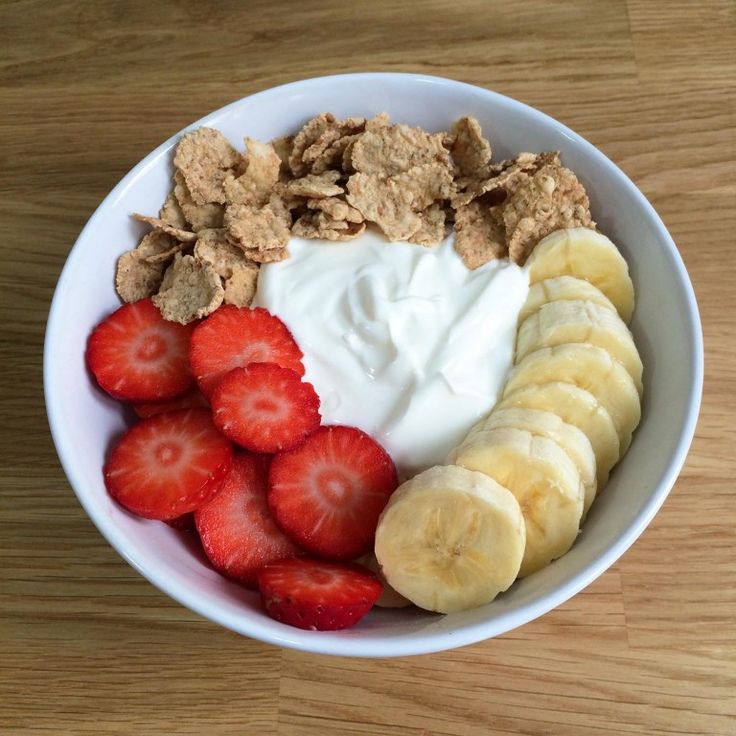
Greek yogurt is a highly nutritious food that offers a range of health benefits. It’s rich in probiotics, which promote a healthy gut microbiome. Additionally, Greek yogurt provides protein, calcium, and vitamin B12, all essential for strong bones, muscle function, and overall health.
Probiotics
Probiotics in Greek yogurt help maintain a healthy gut bacteria balance, supporting digestion, immune function, and mental health. Regularly consuming probiotics improves digestion, reduces inflammation, and enhances immune function.
Protein
Greek yogurt offers a good amount of protein, essential for muscle repair, growth, and overall function. Sufficient protein intake supports weight loss, improves muscle tone, and boosts energy levels.
Calcium
Greek yogurt is rich in calcium, promoting bone strength and nerve function. Adequate calcium intake helps prevent osteoporosis and supports strong, healthy bones.
Adding Greek yogurt to your diet supports gut health, muscle recovery, and bone strength.
7. Olive Oil

Olive oil, especially extra virgin olive oil, is one of the healthiest fats you can include in your diet. It’s rich in monounsaturated fatty acids, which support heart health. Olive oil also contains antioxidants like polyphenols, which reduce inflammation and oxidative stress.
Heart Health
Olive oil promotes heart health by lowering bad cholesterol (LDL) and reducing the risk of heart disease. The monounsaturated fats in olive oil improve blood circulation and help regulate blood pressure.
Anti-Inflammatory Properties
Polyphenols in olive oil have anti-inflammatory effects, which reduce the risk of chronic diseases like arthritis, heart disease, and cancer.
Antioxidants
Olive oil is loaded with antioxidants that protect the body from oxidative damage caused by free radicals. These antioxidants can also improve skin health and reduce signs of aging.
Incorporating olive oil into your diet supports heart health, reduces inflammation, and protects against chronic diseases.
8. Green Tea

Green tea is a popular beverage known for its health benefits. It’s rich in antioxidants, particularly catechins, which reduce the risk of chronic diseases, improve brain function, and aid in weight loss.
Antioxidants
Green tea is packed with antioxidants, including catechins and flavonoids, which neutralize free radicals and reduce oxidative stress. These antioxidants protect against certain cancers, improve heart health, and promote skin health.
Brain Function
Green tea contains caffeine and L-theanine, which work together to improve brain function, boost alertness, and enhance cognitive performance. It may also reduce the risk of neurodegenerative diseases like Alzheimer’s and Parkinson’s.
Weight Loss
Green tea boosts metabolism and promotes fat oxidation, making it an effective aid for weight loss. Drinking green tea regularly supports a healthy metabolism and encourages fat burning.
Drinking green tea improves brain health, promotes weight loss, and reduces the risk of chronic diseases.
Conclusion
Incorporating nutrient-rich foods into your diet can significantly improve your overall well-being. Fresh fruits and vegetables, nuts and seeds, fatty fish, whole grains, legumes, Greek yogurt, olive oil, and green tea offer powerful health benefits that support heart health, brain function, digestion, and immune health. A balanced diet, along with regular physical activity, adequate sleep, and stress management, is essential for maintaining long-term health and vitality. By making these wholesome foods part of your daily routine, you can take important steps toward achieving a healthier, more vibrant life.
